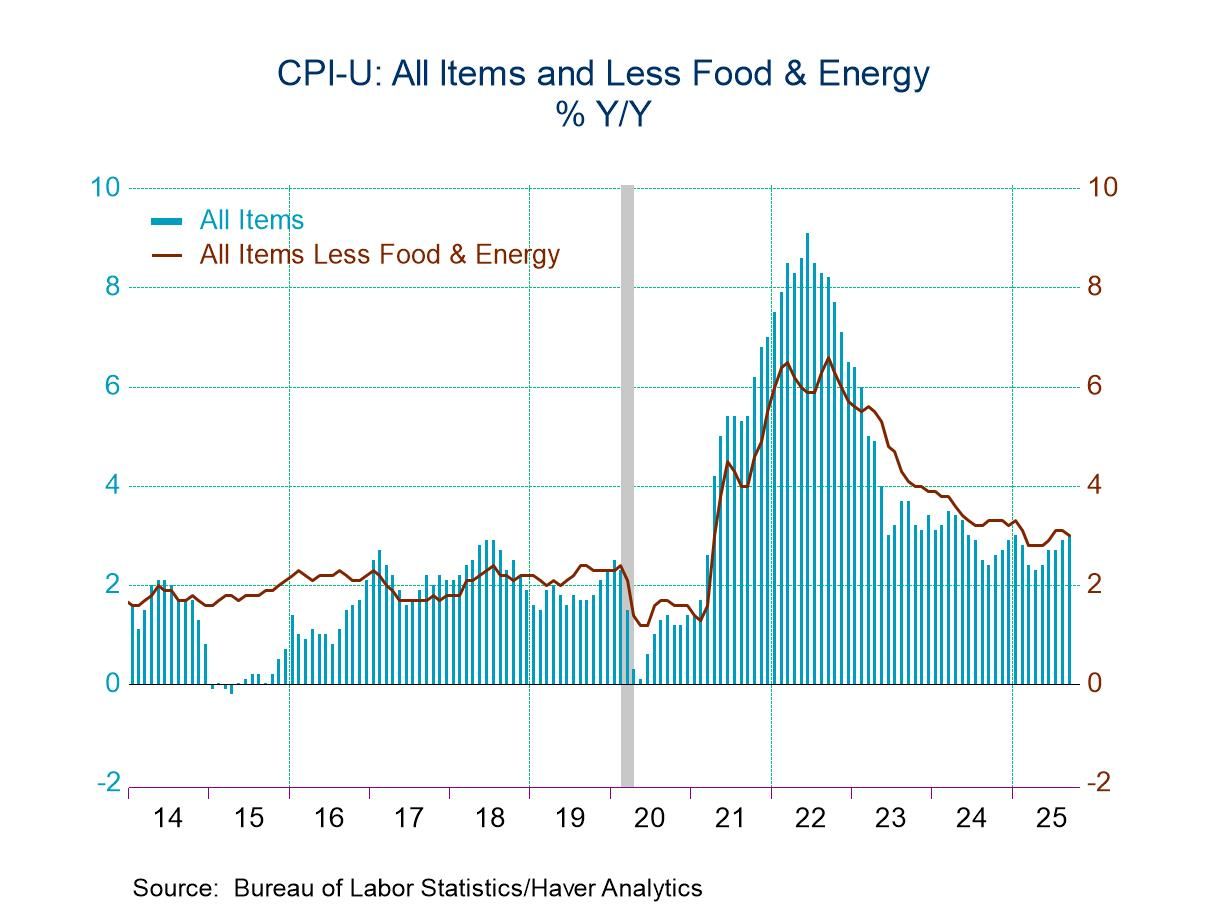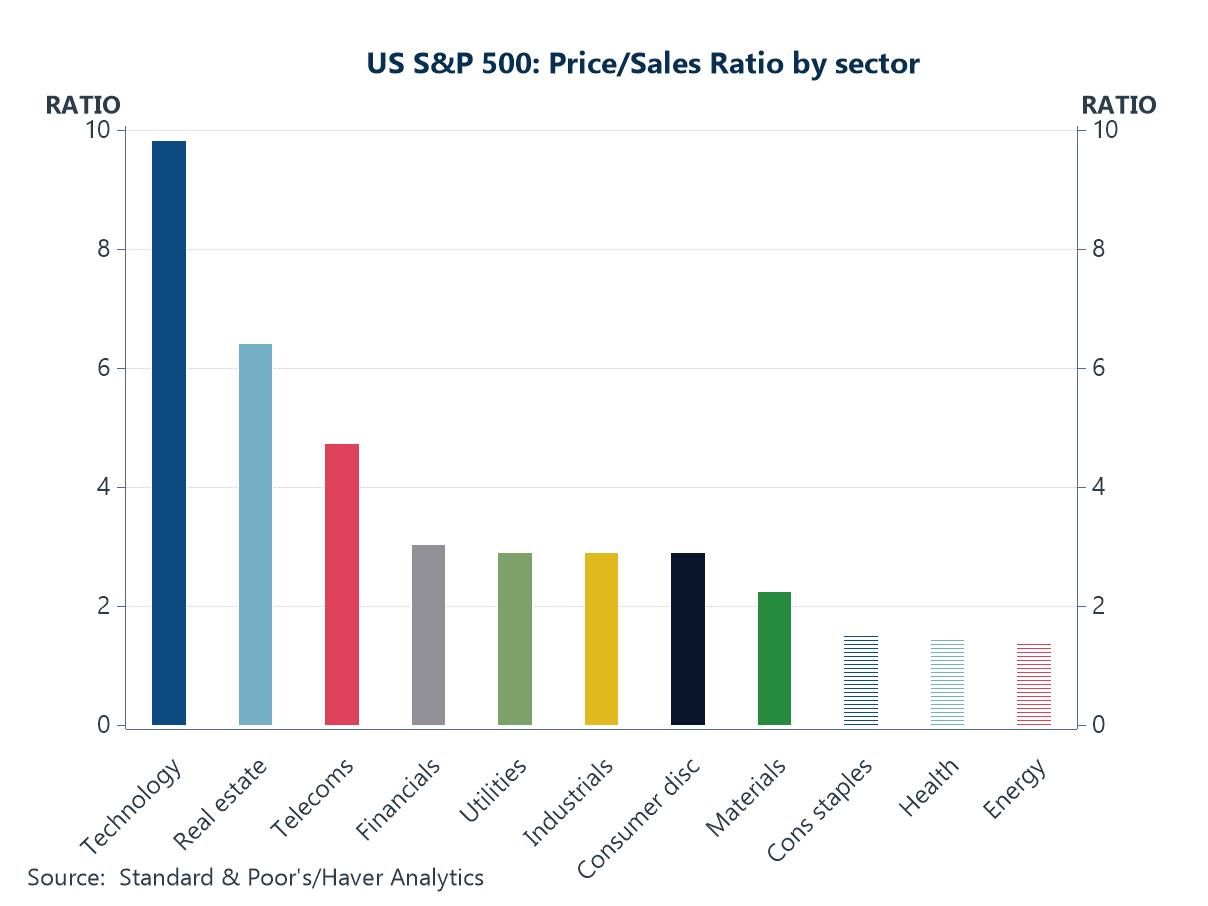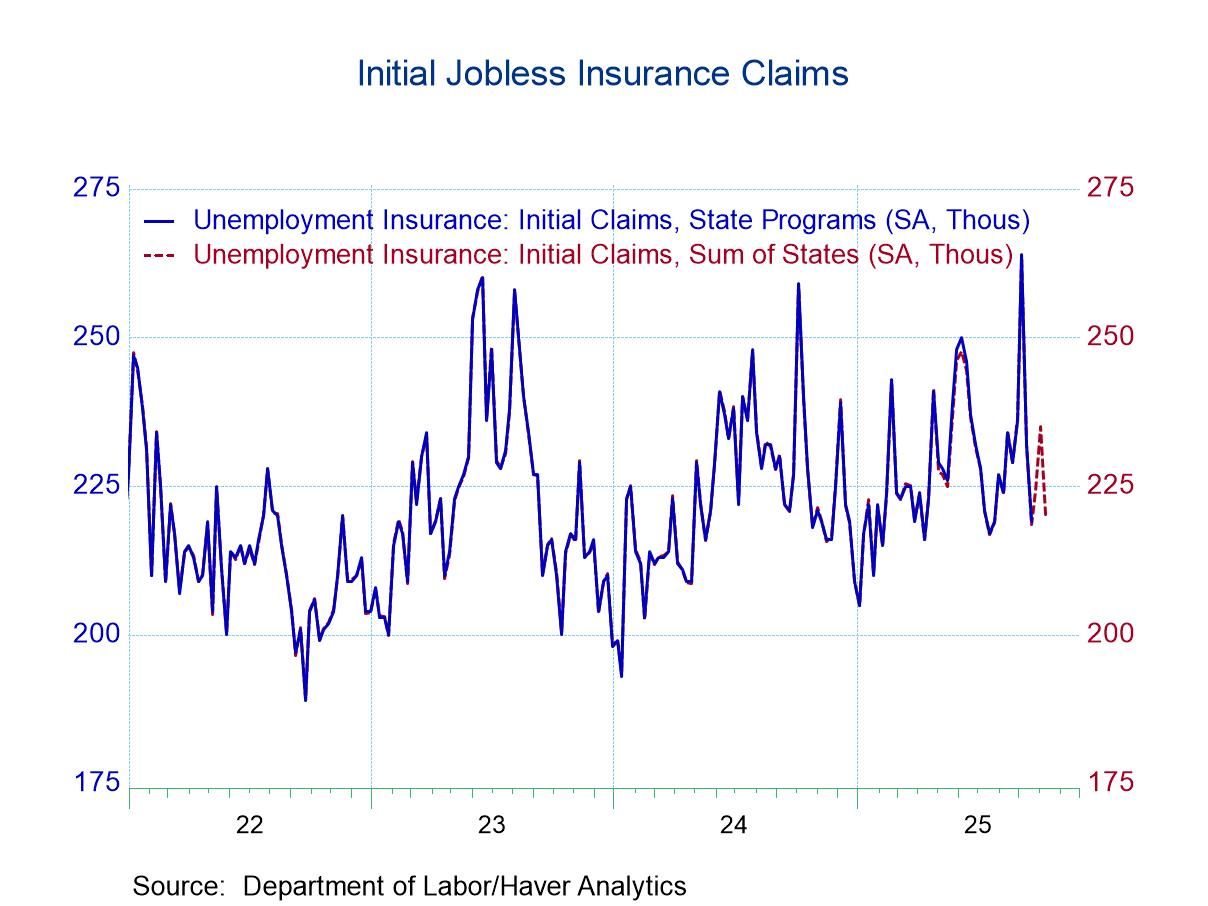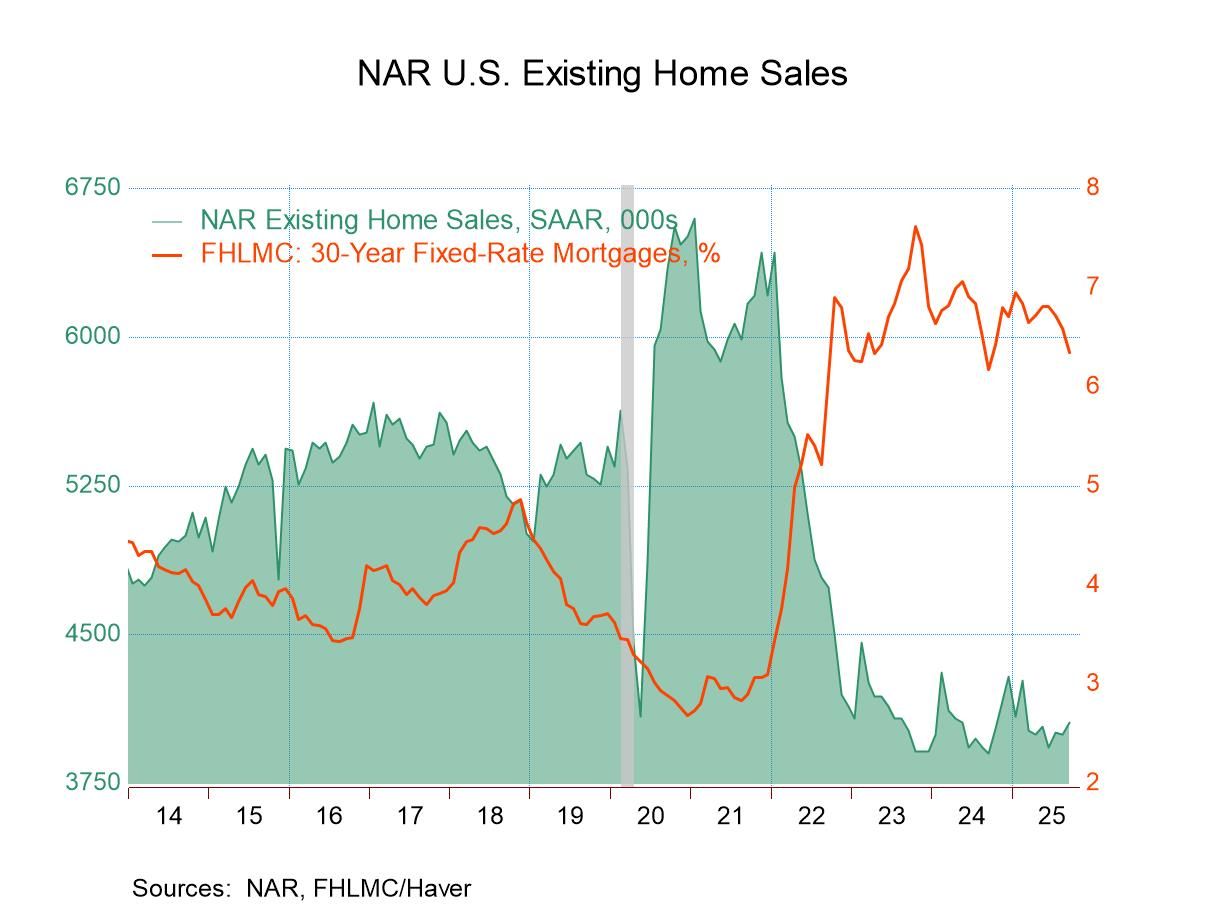 Global| Feb 09 2005
Global| Feb 09 2005Mortgage Applications Spurred By Lower Rates
by:Tom Moeller
|in:Economy in Brief
Summary
Mortgage applications rose last week for the third week in the last four according to the Mortgage Bankers Association (MBA) Survey. The 4.2% w/w rise pulled applications up 25.5% from the low in early January. Applications to [...]
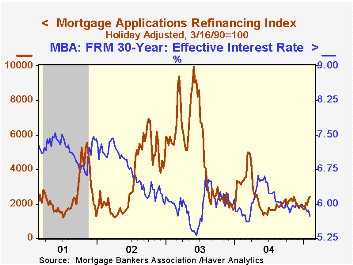
Mortgage applications rose last week for the third week in the last four according to the Mortgage Bankers Association (MBA) Survey. The 4.2% w/w rise pulled applications up 25.5% from the low in early January.
Applications to refinance added 7.8% to the prior week's 16.6% w/w jump. Refis are now 41.3% above the early January low.
Purchase applications rose 1.0% w/w and are up 13.1% during the last four weeks. During the last ten years there has been a 59% correlation between the y/y change in purchase applications and the change in new plus existing home sales.
The effective interest rate on a conventional 30-year mortgage fell to the lowest level since late March of 2004. At 5.73% the rate compares to 5.89% averaged last month. The effective rate on a 15-year mortgage also fell to 5.35% last week, the lowest since December.
The Mortgage Bankers Association surveys between 20 to 35 of the top lenders in the U.S. housing industry to derive its refinance, purchase and market indexes. The weekly survey accounts for more than 40% of all applications processed each week by mortgage lenders. Visit the Mortgage Bankers Association site here.
Behind the Scenes at the FOMC: How the Federal Reserve Determines Monetary Policy is the title of a speech delivered by Fed Governor Susan Schmidt Bies and it is available here.
| MBA Mortgage Applications (3/16/90=100) | 02/04/05 | 01/28/05 | Y/Y | 2004 | 2003 | 2002 |
|---|---|---|---|---|---|---|
| Total Market Index | 735.9 | 706.4 | -7.8% | 735.1 | 1,067.9 | 799.7 |
| Purchase | 444.6 | 440.3 | 10.5% | 454.5 | 395.1 | 354.7 |
| Refinancing | 2,430.7 | 2,253.9 | -21.6% | 2,366.8 | 4,981.8 | 3,388.0 |
by Tom Moeller February 9, 2005
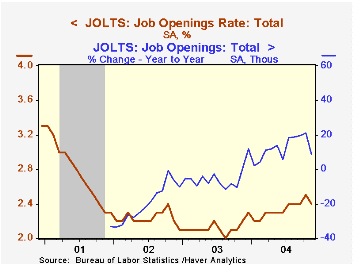
The tone of the Job Openings & Labor Turnover Survey (JOLTS) from the Bureau of Labor Statistics reversed in December versus the prior month. The job openings rate gained what was lost in November, rising to 2.5%. The job openings rate is the number of job openings on the last business day of the month as a percent of total employment plus job openings.
... and the hires rate fell back to the November level of 3.4%. The hires rate is the number of hires during the month divided by employment.
The total number of job openings rose 5.6% in December, gaining back most of what was lost in November.
Job separations rose 3.6% m/m and by 6.4% versus last year. The separation rate was up slightly at 3.2%. Total separations include quits, layoffs, discharges, and other separations as well as retirements. The total separations, or turnover, rate is the total number of separations during the month divided by employment.
The survey dates only to December 2000 but has since followed the movement in nonfarm payrolls.
From the U.S. Department of Labor, a description of the Jolts survey and the latest release is available here.
Fed Chairman Alan Greenspan's Adam Smith lecture can be found here http://www.federalreserve.gov/boarddocs/speeches/2005/20050206/default.htm
| JOLTS (Job Openings & Labor Turnover Survey) | Dec | Nov | Dec '03 | 2004 | 2003 | 2002 |
|---|---|---|---|---|---|---|
| Job Openings Rate: Total | 2.5% | 2.4% | 2.3% | 2.4% | 2.1% | 2.2% |
| Hires Rate: Total | 3.4% | 3.6% | 3.2% | 3.3% | 3.1% | 3.2% |
Tom Moeller
AuthorMore in Author Profile »Prior to joining Haver Analytics in 2000, Mr. Moeller worked as the Economist at Chancellor Capital Management from 1985 to 1999. There, he developed comprehensive economic forecasts and interpreted economic data for equity and fixed income portfolio managers. Also at Chancellor, Mr. Moeller worked as an equity analyst and was responsible for researching and rating companies in the economically sensitive automobile and housing industries for investment in Chancellor’s equity portfolio. Prior to joining Chancellor, Mr. Moeller was an Economist at Citibank from 1979 to 1984. He also analyzed pricing behavior in the metals industry for the Council on Wage and Price Stability in Washington, D.C. In 1999, Mr. Moeller received the award for most accurate forecast from the Forecasters' Club of New York. From 1990 to 1992 he was President of the New York Association for Business Economists. Mr. Moeller earned an M.B.A. in Finance from Fordham University, where he graduated in 1987. He holds a Bachelor of Arts in Economics from George Washington University.



